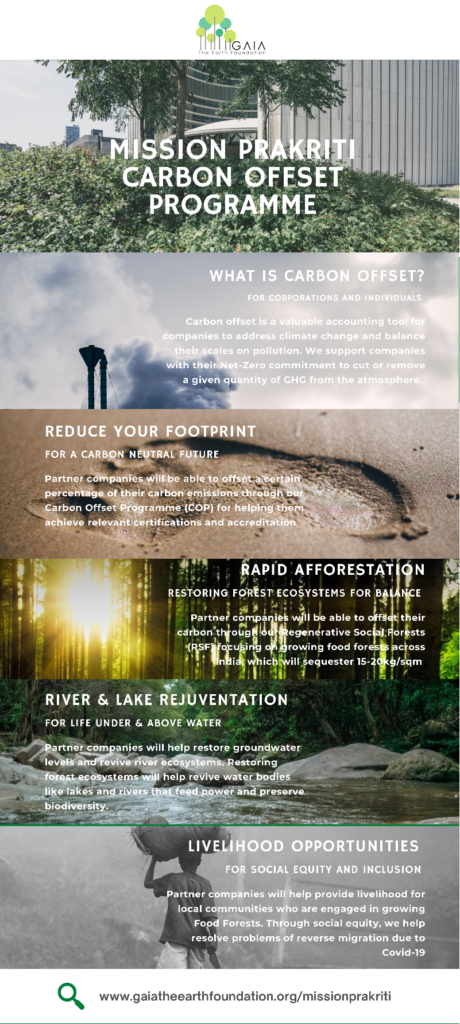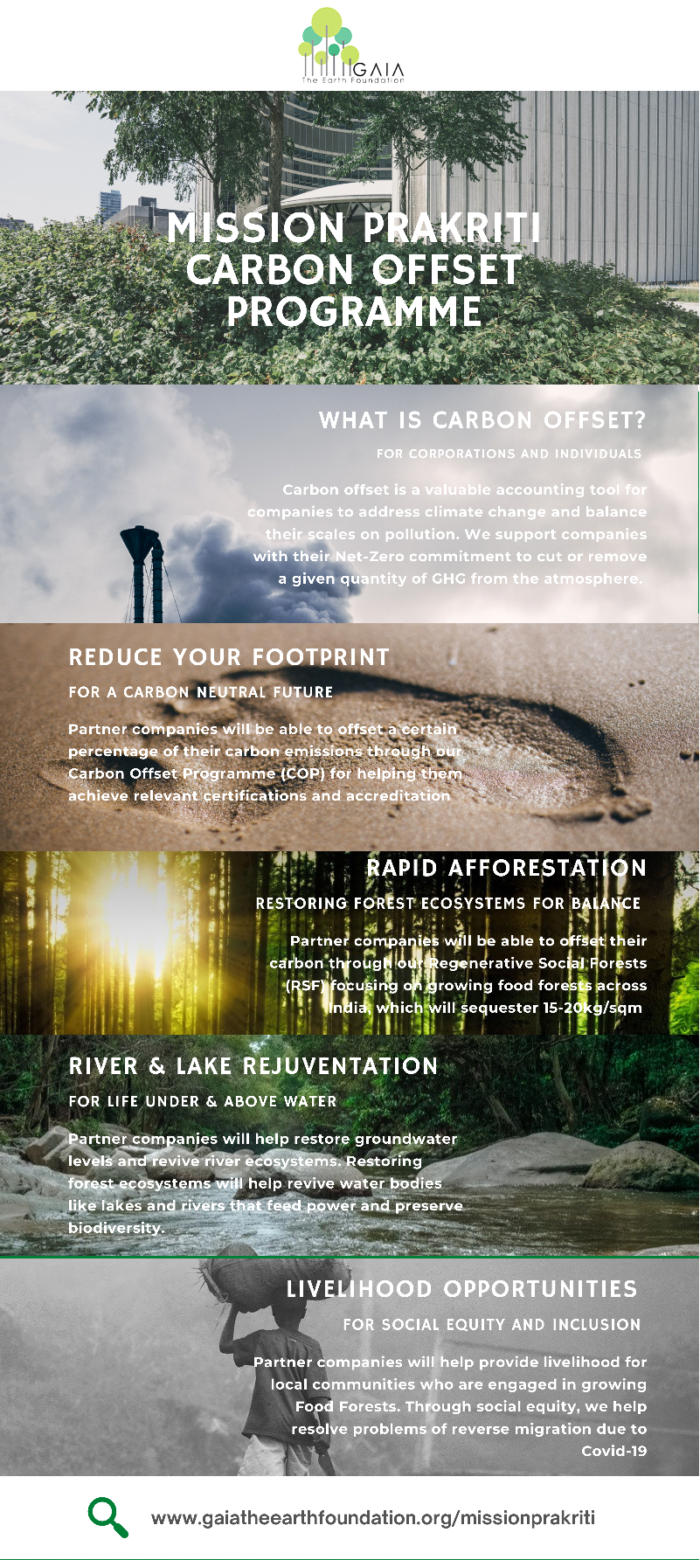GAIA The Earth Foundation launches its pilot carbon offset programme through Mission Prakriti

Bangalore, India: As we commemorate World Environment Day to restore our ecosystem; Environmental Services Organisation, GAIA The Earth Foundation announces
the launch of Mission Prakriti Carbon Offset Program for Corporations to help corporations and individuals mitigate the implications of climate change and accelerate their journey towards carbon neutrality. The carbon offset program is positioned to help companies and individuals offset a certain percentage of carbon emissions through Mission Prakriti Carbon Offset Programme (MPCOP) to achieve desirable sustainability standards.
Anchored on a regenerative social forestry model that adopts a holistic, social, and indigenous approach to rapid afforestation, this unique carbon offsetting program presents a multitude of benefits to participating companies. They get to not only offset their carbon but also engage in improving the livelihoods and social wellbeing of the underprivileged communities and thereby amplifying their social return on investment.
Offset for Reset
Carbon Offset is a valuable accounting tool for companies to address climate change and help them balance their emission scales. One carbon offset symbolizes the reduction of one metric ton of carbon dioxide or its equivalent in other greenhouse gases. The global Voluntary Carbon Offsets market size for 2020 was $247.9 million and is projected to reach $514.7 million by 2027. Owing to the numerous social and environmental benefits, Afforestation and Reforestation(A/R) offset transactions are the most popular Voluntary Carbon Market (VCM) offsets among Corporations eying net-zero carbon commitments.
Carbon sequestration through afforestation is the long-term removal and capture of carbon dioxide from the atmosphere to slow or reverse atmospheric CO2 pollution and mitigate global warming. Over and above carbon sequestration, regenerative social forestry has a holistic social and environmental impact that spans restoration of ecological balance, regeneration and conservation of biodiversity, social heritage protection, and livelihood creation for those most impacted by climate change.
Forty percent of India’s poor live on the periphery of forests and are dependent on firewood, non-timber forest products, and livestock grazing. Due to this massive pressure on forest reserves to sustain their livelihood, communities have been indulging in monocropping practices, which have resulted in deforestation and increasing barren lands. Mission Prakriti is set to convert 5000 acres of barren land into food forests using the Regenerative Social Forestry model impacting thousands of farmers and their families.
Losing forests means losing the best nature-based solution to climate change. They have the potential to capture nearly twice as much if we plant more trees, use climate-smart practices to manage our forests, and take other actions. Not just forests, trees in metropolitan areas and small towns are responsible for capturing and storing carbon emissions.

